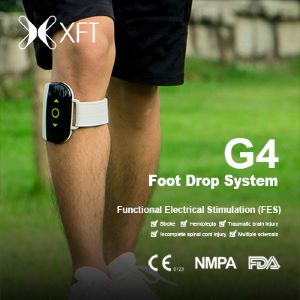Poster
Psychometric Validation of the PERMA-Profiler as a Well-Being Measure for Young Adult Survivors of Pediatric Central Nervous System Tumor
Wednesday, November 1, 2023
3:35 PM - 3:41 PM
Location: Station 10
.jpg)
Teresa A. Granger, CRC (she/her/hers)
Assistant Professor
University of Alabama
Tuscaloosa, Alabama, United States- FL
Fatima Leghari
Doctoral Student
University of Alabama
Tuscaloosa, Alabama, United States
Presenting Author(s)
Research Objectives: To validate a measure of well-being, the PERMA-Profiler, among a sample of young adult survivors of pediatric central nervous system (CNS) tumor. To evaluate the factor structure of the PERMA-Profiler in this sample.
Research Question 1: What is the factor structure of the PERMA-Profiler in a sample of young adult survivors of pediatric CNS tumor?
Research Question 2: Is the PERMA-Profiler a valid and reliable measure in a sample of young adult survivors of pediatric CNS tumor?
Design: Measurement structure of the PERMA-Profiler was evaluated using exploratory factor analysis and confirmatory factor analysis using pretest–posttest data. Reliability and concurrent validity
of the PERMA-Profiler were examined.
Setting: Participants were recruited from the Children's Brain Tumor Foundation. Participants completed pre- and post-tests via an online survey.
Participants: This study included 127 young adult survivors of pediatric CNS tumor between the ages of 18 and 30 (M = 23.83, SD = 3.00) years.
Interventions: No interventions.
Main Outcome Measures: Well-being was measured with the PERMA-Profiler (Butler & Kern, 2016). The PERMA-Profiler consists of a total of 23 items, of which 15 measure the five pillars of well-being (i.e., positive emotion, engagement, relationships, meaning, and accomplishment) and eight are filler items.
Results: The results of factor analyses yielded a single-factor solution for well-being. Significant relationships between well-being and happiness, life satisfaction, perceived stress, and physical health were observed, providing support for the concurrent validity of the PERMA-Profiler. The PERMA-Profiler displayed good internal consistency and test–retest reliability.
Conclusions: The PERMA-Profiler can help rehabilitation researchers and practitioners to better evaluate well-being in young adult survivors of pediatric CNS tumor, which provides opportunity for more targeted psychosocial interventions.
Author(s) Disclosures: None.
Research Question 1: What is the factor structure of the PERMA-Profiler in a sample of young adult survivors of pediatric CNS tumor?
Research Question 2: Is the PERMA-Profiler a valid and reliable measure in a sample of young adult survivors of pediatric CNS tumor?
Design: Measurement structure of the PERMA-Profiler was evaluated using exploratory factor analysis and confirmatory factor analysis using pretest–posttest data. Reliability and concurrent validity
of the PERMA-Profiler were examined.
Setting: Participants were recruited from the Children's Brain Tumor Foundation. Participants completed pre- and post-tests via an online survey.
Participants: This study included 127 young adult survivors of pediatric CNS tumor between the ages of 18 and 30 (M = 23.83, SD = 3.00) years.
Interventions: No interventions.
Main Outcome Measures: Well-being was measured with the PERMA-Profiler (Butler & Kern, 2016). The PERMA-Profiler consists of a total of 23 items, of which 15 measure the five pillars of well-being (i.e., positive emotion, engagement, relationships, meaning, and accomplishment) and eight are filler items.
Results: The results of factor analyses yielded a single-factor solution for well-being. Significant relationships between well-being and happiness, life satisfaction, perceived stress, and physical health were observed, providing support for the concurrent validity of the PERMA-Profiler. The PERMA-Profiler displayed good internal consistency and test–retest reliability.
Conclusions: The PERMA-Profiler can help rehabilitation researchers and practitioners to better evaluate well-being in young adult survivors of pediatric CNS tumor, which provides opportunity for more targeted psychosocial interventions.
Author(s) Disclosures: None.
Learning Objectives:
- Upon completions, participants will be able to define Seligman's model of well-being.
- Upon completion, participants will be able to describe a method to evaluate well-being among young adult survivors of pediatric central nervous system tumor.
- Upon completion, participants will be able to describe the importance of measuring well-being among young adult cancer survivors.

.jpg)
